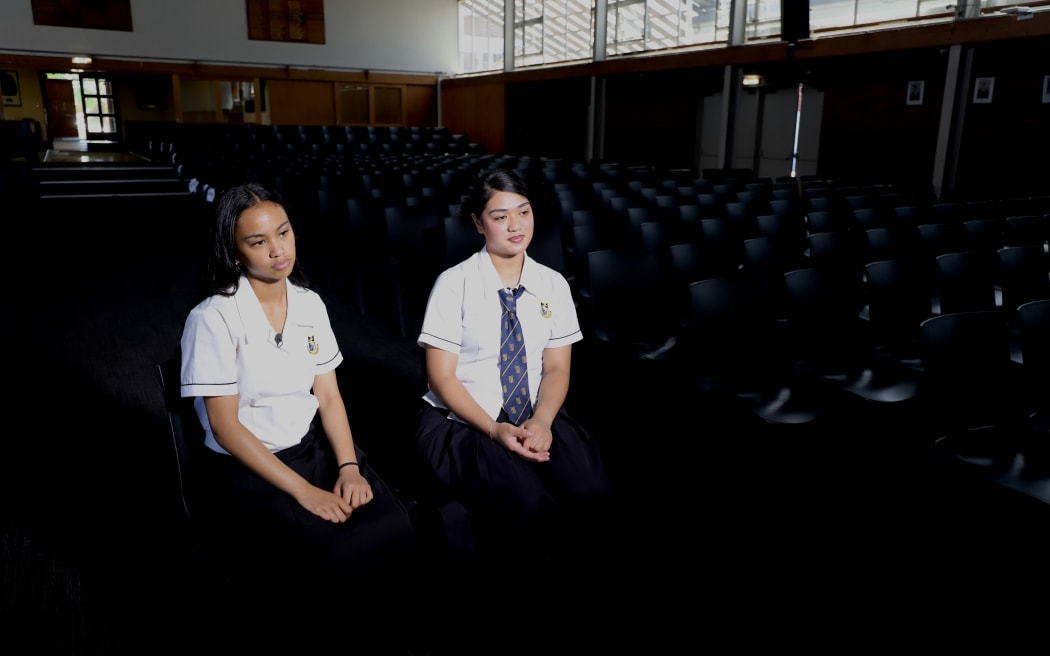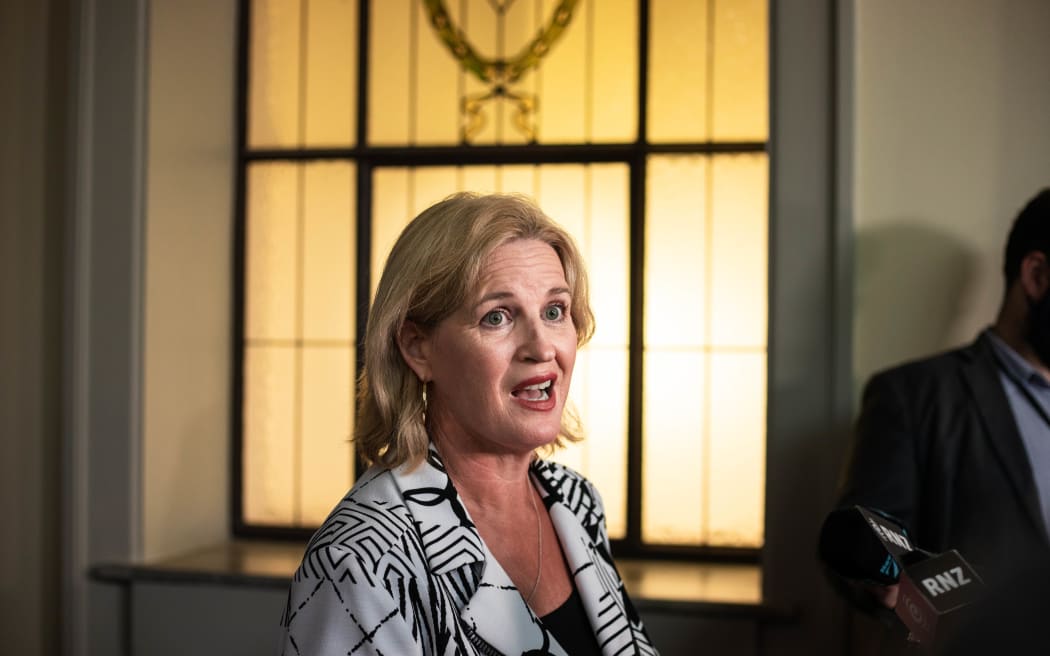Teenagers in New Zealand are being faced with a tough choice: a quality education or putting food on the table for their family.
That is the reality for more than 15,000 teenagers taking on 20 to 50 hours of paid work a week on top of study.
The Child Poverty Action Group has released a report examining the extent of the issue and it is calling for urgent support for students who they say are being robbed of their education due to financial pressure.
In Auckland, Ōtāhuhu College Year 13 student River said after school she starts her shift at the local KFC at 4pm which went on until 10pm. On weekends she stays till closing time which was 1am.
All up she works about 40 hours a week on top of her school work.
"I'm always so tired, I'm exhausted when I come to school but I want to come to school to graduate."
She is not alone.
Year 13 student Grace works 20 hours a week at McDonald's in Auckland Airport.

Ōtāhuhu students River (left) and Grace (right) Photo: RNZ / Marika Khabazi
When asked why they needed to put in such long hours, the answer was the same for both students.
"In our family, we do struggle sometimes, so that motivation has helped me push through work and school at the same time," Grace said.
River said her father worked 12-hour days. "I'm just another pair of hands because I look after my younger sister, who's 12 at this school driving her places she needs to be because dad's always busy at work and has other things to do."
Two years ago, Fuifatu failed NCEA level 1 after taking on multiple jobs, often missing days of school to work, or to recover from physically demanding jobs.
He recalled studying through the night after working all day.
"So there'll be days where I won't sleep, I'll just be going to my laptop and I check the extra notes and I'll be studying then take two hours sleep and then repeat."

Ōtāhuhu College students Fuifatu, Grace, Matalupe and River. Photo: RNZ / Marika Khabazi
Fuifatu said he needed to do this to ensure there was food in the family home. Since moving in with his sister things have become a little easier.
"We are only able to afford just our rent and we only had a little bit of money to buy groceries ... but ever since I moved with my sister, I was able to find new alternatives and thanks to school providing free lunches, I was able to just provide for my family."
'Caught in a hardship bind'
At Aorere College in nearby Papatoetoe, principal Lianne Webb said students were also working night shifts.
"We were talking to one boy the other day who turned up to school at 10am and his shift had been 10pm to 6am so he had gone home, tried to catch a few hours sleep, and then he'd come to school."
Webb acknowledged that it was not possible for students to work long hours and still function at school, but some just did not have a choice.
"In the end, families have to pay for the rent they have to be able to buy food they've got to pay for their bills.
"They're at school and they're trying to do this because they know that they need to get good qualifications, but they're caught in a hardship bind."

Aorere College principal Lianne Webb. Photo: RNZ / Marika Khabazi
Aorere College year 13 students James and Aaron work three days a week at a logistics company. Their shifts begin at 4am and are supposed to finish at 8am, but are often longer.
The long days and early starts are difficult.
"It's hard to focus, but I just try, things were getting rough at home so I needed to help my family," Aaron said.
"Sometimes it feels pretty rough, [I'm] really just trying to make my family life easier," James said.
Webb said the government needed to step in if it wanted to prevent students failing to attain high school qualifications.
She would like to see the student allowance currently offered to eligible tertiary students extended to high school students.
The Child Poverty Action Group is trying to draw attention to this issue, which has not been the subject of extensive research or government interventions.
Its report points out that children over 16 are treated in household income stats as adult earners, which affects their households' eligibility for the Working for Families tax credits.
Child Poverty Action Group convener Alan Johnson said children were deemed to be living above the poverty line only due to their own labour.
"If you've got two or three of your children actually contributing income into your house simply because you have to, it makes your income look a whole lot higher."
The group is calling for the number of hours students can work to be capped at 20 a week and to increase the minimum wage to the living wage.
Johnson said education was simply not a leveller anymore.
Back at Ōtāhuhu College, Fuifatu said he was grateful to be back in the classroom and not at work.
"I really want to go to uni, because I want to break that cycle of us working very essential jobs."
Government aims to tackle cost of living crisis - minister
Child Poverty Reduction Minister Louise Upston told Checkpoint she believed a suite of government policies would help ease the cost of living crisis which she said was key for low-income families.
The Child Poverty Action Group report highlighted the cost of living crisis and the real pressure it was putting on New Zealand families, she said.

Child Poverty Reduction Minister Louise Upston. Photo: RNZ / Samuel Rillstone
When asked what the government could do to help students working long hours while at high school, Upston said that was ensuring student's parents were in work.
"That's the best way to lift their incomes and at the same time obviously the government's primary focus is reducing the cost of living."
When asked whether National would commit to raising the minimum wage to the living wage, she said it would not.
When it came to means testing high school students and rolling out a student allowance to students at high school she said that was not an issue the government was focused on.
"We are focused on reducing the cost of living so that families aren't having to make the kinds of choices they are making currently to make ends meet."
As for household income statistics including money earned by 15-year-olds and over, Louise Upston said that could need consideration in future reports.


